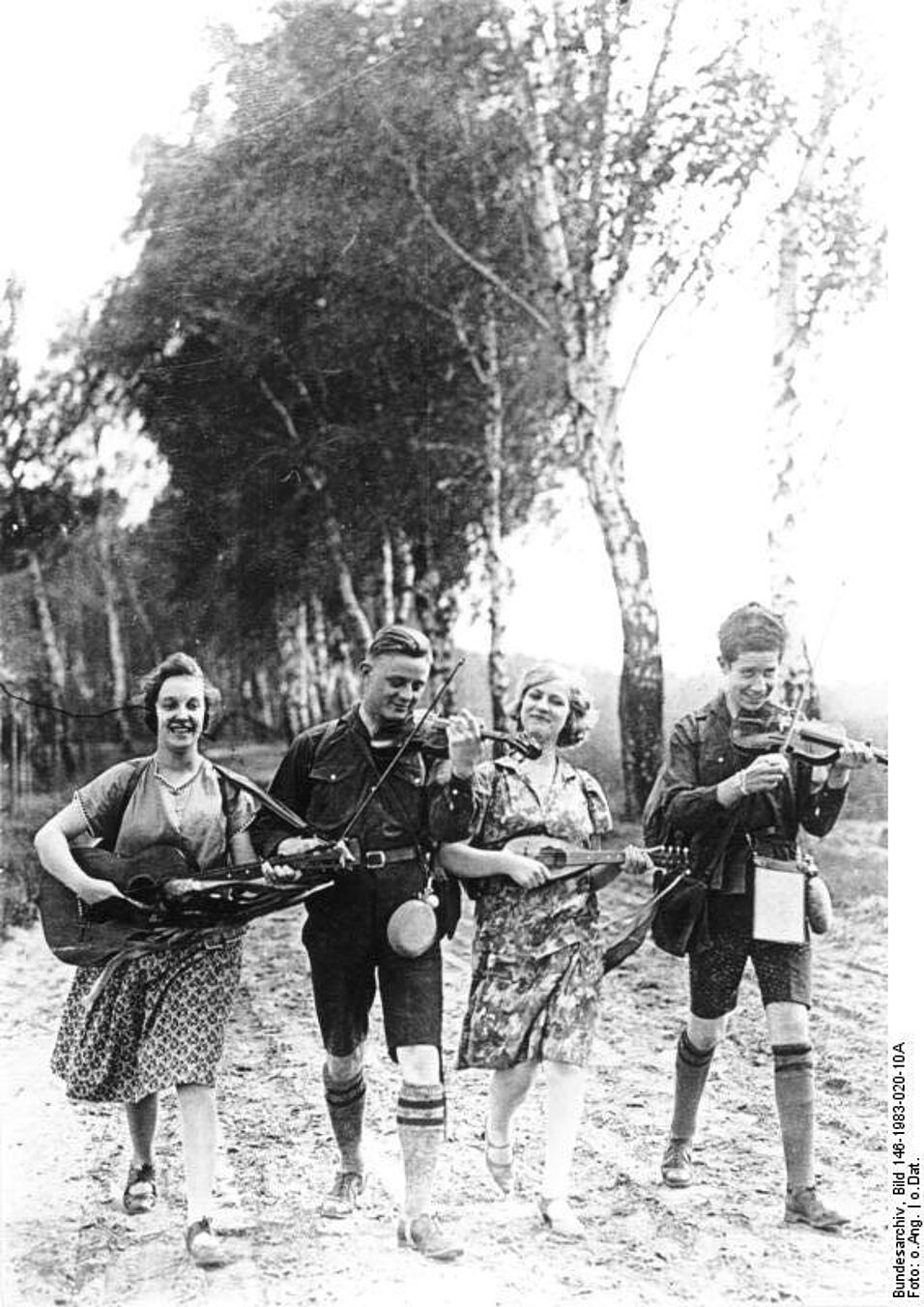Rallying Europe: Intersectional Approaches to Youth in the Mid-Twentieth Century
This workshop seeks to approach the interwar and Second World War period by looking through the lens of age and gender. In doing so, we hope to reveal how adult perceptions of youth and gender framed young men and women’s lives and their roles in society. Furthermore, we want to explore how these perceptions collided with youth agency, probing the specific age- and gender-related dynamics of empowerment and organization. From the International Brigades of the Spanish Civil War to the Hitler Youth to the Jewish Youth Movements in the Warsaw Ghetto Uprising, the turmoil of the mid-twentieth century saw young people of all political, ideological or social affiliations rallying for action across Europe. We welcome proposals for original research articles that explore the themes of youth and gender from a variety of perspectives and methodologies from historians of all career stages, though we would particularly encourage early career researchers to submit proposals. Subsequent to this workshop a special issue of a Journal on this topic is planned.
The categories of historical analysis of youth (Lovett/Lasonde/Mintz/Paris 2008) and of gender (Waxman 2017, Scott 1986) provide a framework for studying individuals, society, and power relations and distribution. Youth is often perceived as referring to the grey zone between childhood and adulthood: as citizens-to-be in adult spaces, young people were simultaneous recipients of disciplinary measures and politics as well as actors in their respective societies. Impacted by their age, young people experienced life differently to adults, often enacting energetic, creative or self-confident pursuits that mobilized groups of youth. Concurrently, young people, like children, continued to be subjected to adult guidance and rule, with adults playing significant roles in youth organizations. Furthermore, in modern perceptions of youth, fears and hopes for the future intersected, turning young people into target groups for political, social and educational programmes (King/Crewe/Dodd 2015 ). At the same time, young people’s shared ages also acted to define groups of youth, enabling them to create their own spaces for action or to enter adult social spaces (Valentine 2003).
Combining the category of age with the equally intersectional category of gender, it becomes possible to question how individual and group agency was expressed differently by young men, women, and those challenging traditional norms of gender and sexuality. Gender considerations, usually embedded in such norms, often determined the roles adults gave young people in youth movements, with male and female responsibilities differing starkly. In para-military groups, for example, young men performed gendered perceptions of manhood rooted in heroism and armed struggle (Geheran 2018). For those suffering from persecution, resistance activities involving armed combat offered a way of reasserting normative masculinities (Carey 2017). Young women, on the other hand, were generally channelled towards traditionally female occupations, like nursing and care for children (Bartrop and Lakin 2019). As with youth, however, gendered roles were not absolute, as young men and women challenged the social restrictions adults put upon them. Approaching youth and gender together thus combines two intersectional categories that shaped people’s lives.
The Workshop “Rallying Europe: Intersectional Approaches to Youth Mobilization in the Mid-Twentieth Century” aims, therefore, to explore the interwar and Wartime period further by focussing on the categories of youth and gender and by approaching their intersection from the youth’s point of view. As we seek to develop a pan-European perspective, we strongly invite scholars working on case studies of any European country of the interwar and World War II period.
Research questions that researchers can consider include, but are not limited to:
- What methods did young people use to organize themselves in interwar and Second World War Europe?
- How did young people respond to adult attempts to organize and mobilize them in ideological groups?
- Did – and if so: how – their activities change if carried out by men or by women?
- How did cooperation between young men and women work while rallying for their interests?
- What were the competing influences on young people’s lives, e.g. State, School, Family and Religion? How did these interact with each other?
- How did young people’s roles change during times of crisis, e.g. war, uprising, or persecution? How did times of crisis impact the competing influences on their lives?
- How do youth and gender as categories of analysis intersect with other categories, e.g. ethnicity, class, ideology/religion etc.?
- How did young members of persecuted or marginalized groups in society solidarize?
- In what ways was youth mobilization national/international/transnational? How do these frames of analysis impact our understanding of their mobilization?
Before publishing as a special issue, we will invite successful applications to an international workshop which will take place on March, 25th to 27th at the Department of Contemporary History at University of Vienna. Pending on the final budget travel expenses and accommodation will be provided for presenters. If the current pandemic situation does not allow a meeting in person, we will consider an online format. Applicants who wish not to publish, please let us know beforehand.
Please send us an abstract of 500 words and a short biography by 15.12.2020 to Katharina Seibert (University of Vienna) and Barnabas Balint (University of Oxford) on rallyingeurope.zeitgeschichte@univie.ac.at. We will notify successful applicants by 31.1.2021. Completed articles will need to be submitted by 31.08.2021, should be c. 8,000 words and will be peer-reviewed by the journal before publication.

